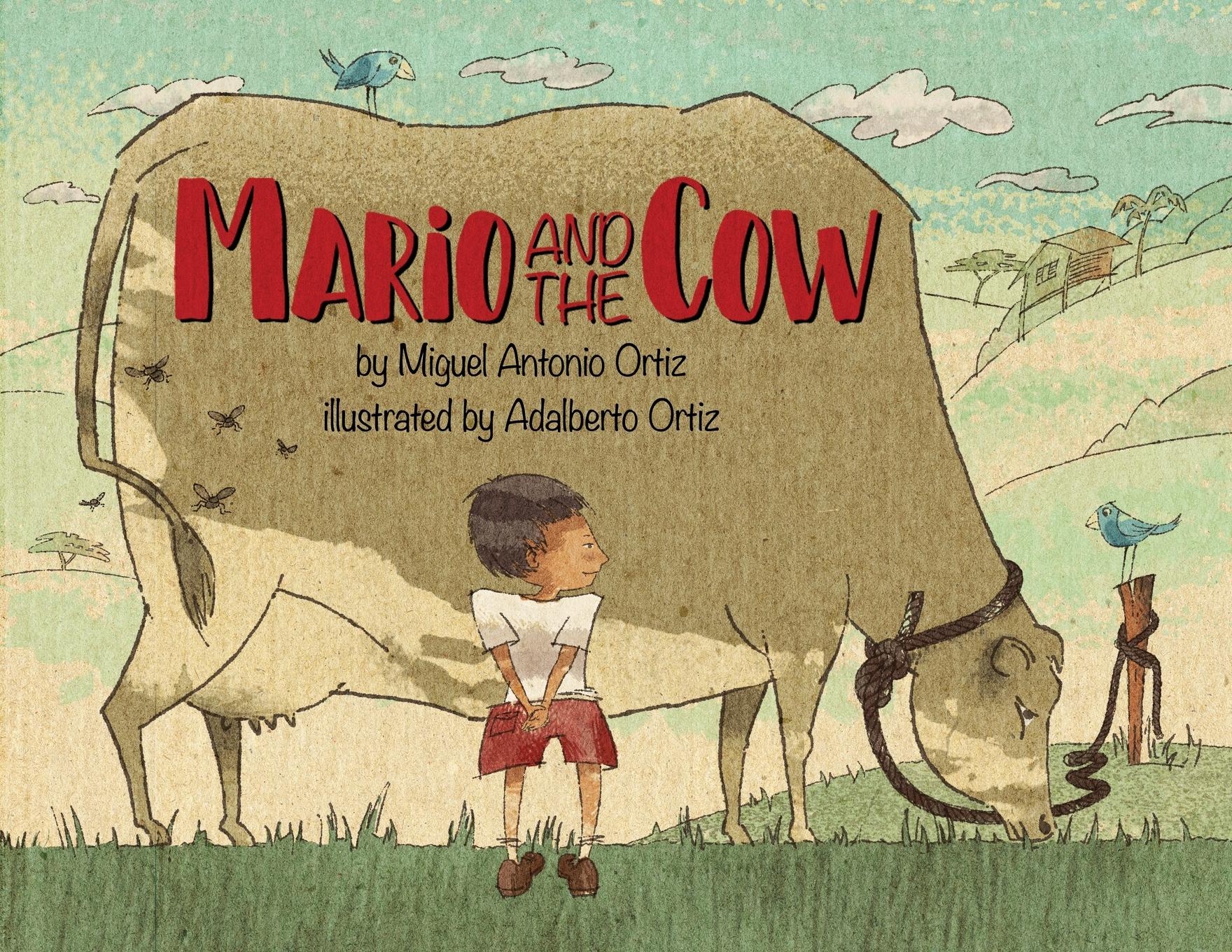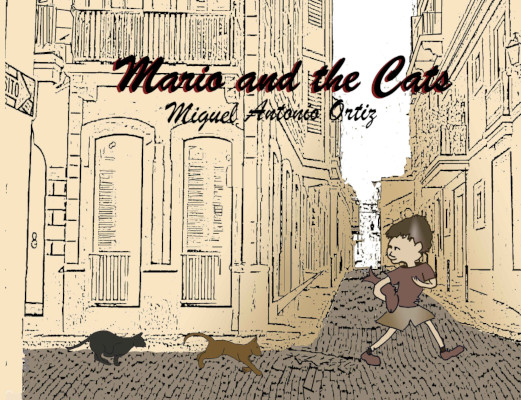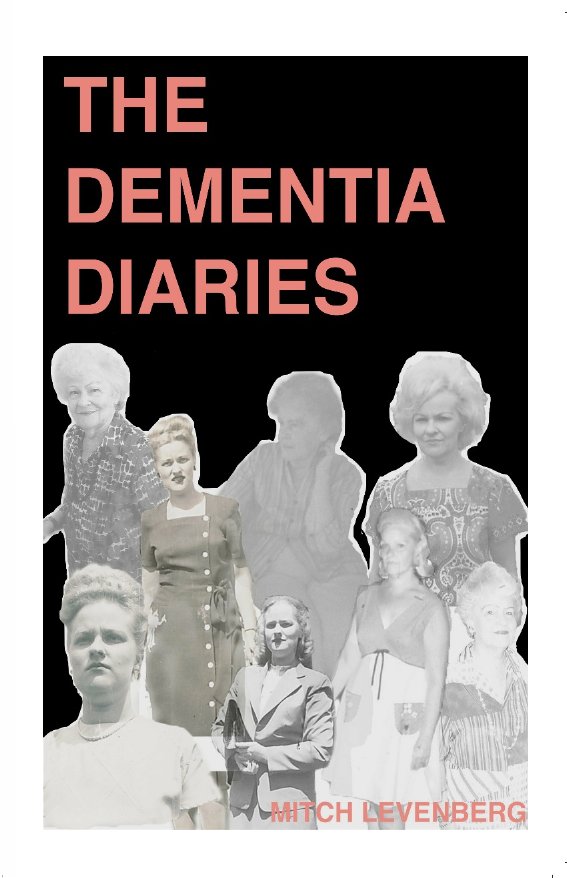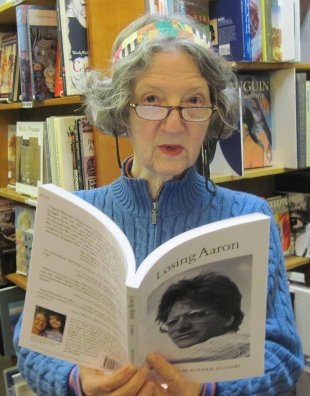Irene Weinberger Books
an imprint of Hamilton Stone Editions
About Us Catalog Order Books Authors Submissions Reviews of Our Books Contact Us
Our Newest Books!
Our Catalog
(alphabetical by author)
Reviews
(alphabetical by author's last name)
Losing Aaron by Ingrid Blaufarb Hughes
The Dementia Diaries by Mitch Levenberg
Write Something by Mitch Levenberg
Witness by Hilton Obenzinger
Mario and the Cow/Mario y la Vaca by Miguel A. Ortiz
Mario and the Cats by Miguel A. Ortiz
The Vagueness of the Tropics by Miguel A. Ortiz
A Space Apart by Meredith Sue Willis
Love Palace by Meredith Sue Willis
Oradell at Sea by Meredith Sue Willis by Meredith Sue Willis
To order, go to Bookshop.org or Amazon.com.
Witness by Hilton Obenzinger
What is fine about Obenzinger's work is that it thematizes problems common to everyone and at the same time illuminates them through the circumstances of his own particularity, rendering the output meaningful and, I do not doubt it, quite likely to endure. It reminds me of Du Fu in T'ang China, who like Obenzinger wrote about matters that are in fact real and important during difficult times, and whose work and personality is remembered now as Witness 2017-2020 will be by historians in whatever dubious future awaits
James Mitchell, Ithuriel's Spear Press
Excellent New Review of Hilton Obenzinger's Witness in the Winter 2022 issue of Rain Taxi
Hilton Obenzinger is the kind of political poet who has, for decades, inspired praise from the likes of Diane DiPrima and Margaret Randall. He is very funny; he is in frequent spiritual pain; he watches the world around him go crazy and tries to stay sane but not too sane.
—Paul Buhle, Rain Taxi ,Winter 2022
From The Rag Blog
Michael Berkowitz in People's World says,"Hilton Obenzinger’s new book of poems Witness 2017-2020 bristles with righteous energy.... It captures the moments when a candid, often florid observer puts down his camera and joins, nay leads the struggle for meaning, justice, and change."
Jonah Raskin says, "The poems in Witness call for reader participation. In stunning ways, they offer a surrealist take on the news, and invite readers to make some news of their own. They're also a kind of incantation meant to exorcise the unholy ghost of Donald Trump, whose name appears more than a dozen times in these pages — more than one might want— and to usher in a new era where all lives matter, where we all age with dignity and we all go into the future, no matter what it might bring. One doesn't expect any the less from veterans of the Sixties who have gone on dreaming the dream and who have gone into the streets over and over again over the past five-decades."
Margaret Randall says, "Hilton Obenzinger bears witness to a time like no other in recent memory. A virus that won’t let go, the raging fires provoked by global warming, and the state terrorism that menaces with neo-fascist criminality and has taken the lives of so many unarmed black youths all combine to shape a period in which we cry out for justice and for peace. These poems tell it like it is. When this poet tells us that he had a dream in which he was walking through beautiful woods with Moses, and that he doesn’t mean Charlton Heston but “more like the old graybeard Walt Whitman,” we know where these poems are headed. Go with them. I promise you won’t regret it."
And from the late Diane di Prima: "I have been following Hilton Obenzinger’s work with delight and astonishment for over 40 years. He is a treasure. Funny, surreal, radical – he is the American Jonathan Swift."
I've had the pleasure to know Hilton for more than 53 years. This most recent publication is unputdownable. Really special.
Ron Turner, publisher of Last Gasp Comix
This book is unique in my experience of contemporary poetry in its blending or alternating a personal voice with a public one. In this sense, it's in the tradition of Whitman, with a clear generosity of spirit but also real anger at authoritarian politics now personified by guess who (or whom.) I recommend the book both for what it says and how it says it. I definitely enjoyed it.
Mitch Sisskind
An excellent book, full of heart, anguish, humor and wisdom!
Genevieve Lim
Witness 2017-2020 speaks about the politics of the pandemic, of the crisis of climate change, of the worldwide threat of plague and fascist politics, but it is personal and caring, forgiving and heartfelt, without being saccharine or fearful, even as it speaks clearly of certain fears in a dangerous time. The poems are wise and appreciative in a way that age may have opened the heart to. That’s why the book is lovely – the way love speaks beyond the times. And thanks for that, Hilton.
Steve Brooks
This book of poetry is truly excellent. Highly recommended. The poems are right on target with a unique blend of optimistic/pessimistic/dialectical social commentary, wry/ ironic humor, brash irreverence (“God Picks His Nose,” for example) and growing wisdom as the virus hits. Given my own state, I especially enjoyed “Old Men with Canes,” but there’s a whole gamut of emotions and reflections throughout this fine book.
Lincoln Bergman
Bravo, Hilton! A compelling, bracing, necessary collection that speaks to our condition (as the Quakers say) with enduring eloquence and clearsighted compassion.
Shelley Fisher Fishkin
A wonderful book of insightful poems!
Nina Serrano
It's an astonishing collection. Political, funny, radical, universal.
Stephanie Palewski Brumbach
"Mysteries of Pandemia,” was a favorite of [late wife] Nancy's. Two of my favorite lines: (1) on the suggestion that climate change may force humanity to colonize outer space, "Earth is so bad, Mars is a relief"; (2) on romance during COVID. "Stay away and be my love."
Peter Clapp
Hilton Obenzinger is the kind of political poet who has, for decades, inspired praise from the likes of Diane DiPrima and Margaret Randall. He is very funny; he is in frequent spiritual pain; he watches the world around him go crazy and tries to stay sane but not too sane.
For some, reading Obenzinger may recall certain poems from Ferlinghetti's A Coney Island of the Mind. As in that masterwork, the politics here do not need to sneak up on you; in these poems put the history of struggle right in front, where it won't be overlooked or forgotten:
April 6, 2020
Why is this night different from all other nights?
Anyone got a good answer?
Maybe this night is different because
We are not in the Warsaw Ghetto launching our revolt.We are thus with the poet in body as much as spirit, even as he livesthrough the forest fires of 2020:
The plague chooses the Pharoah
But the Exodus has yet to begin
Trump is in the hospital
The smoke level is too high
Day after day
And my lungs flutter Bronchial butterfliesHaving taught on the Yurok Indian Reservation and served until his retirement as an associate director of Stanford's Chinese Railroad Workers in North America Project, Obenzinger has walked the walkof antiracism and real leftwing multiculturalism, not just rhetoric or grant proposals about what we should all do. This is made clear in "Zoom Thanksgiving," where we hear the poet intone, "Thank you, Native People, for surviving murder and theft / Thank you, Black Lives Matter, for surviving murder and theft."
The poems are also deeply personal, as he misses his dead friends and ponders (with good humor) getting old: "I'm trying to get my affairs in order / Even though the world is out of order." His closing thought is one that yokes the personal and the political together, and that bears much reflection:
It's always when the bombs are about to drop
That you notice what the world can be
And what you want to leave behind
—Paul Buhle in Rain Taxi, Winter 2022
Read More at Hiltonobenzinger.com
The Dementia Diaries by Mitch Levenberg
Write Something by Mitch Levenberg
See an excellent review of Write Something by Deborah Clearman!
Easy read, lots of fun, but also has a deceptively, disarmingly deep side. I highly recommend, especially if you are a writer or interested in writing!
Scott Shiffrel
This is a surprisingly engaging trip into the life and mind of a Brooklyn writer, particularly his public readings and his relationship to the other readers, the audience, and to his own stories. He calls the pieces, in his introduction, a collection of short essays, and they come mostly from his blog ([...]). The truth is that I don't usually read prose about writing and the writing process: it's what I do and what I teach, so I like to read about cooks and bricklayers, or just about everything except writers. But this one is delightfully different, and I can't exactly say why. Partly it's that even though it appears on the surface to be self-referential (it's a writer writing about times he has read his writing), the sensation is of a deep sharp tunnel into a special world. There are hilarious passages about the other readers, who arrive late, spend too long flipping through their manuscripts, and the audiences who don't respond to a story that other audiences have always responded to. There are foods eaten and drinks drunk, and the delightful honesty of how the writer is sometimes moved by his own writing– and why shouldn't he be? If he isn't moved, how on earth could we be? Anyhow, Mitch Levenberg is clearly someone who can take absolutely anything his eye lights on and make that thing light up.
"A Reader from New Jersey"
Mitch Levenberg has a unique voice, and this unusual little collection is a pleasure. Most of the stories in it have to do with writing and especially with readings--that is, the public performance of writing. Levenberg is wonderful at getting at the existential experience of readings--those moments where you know the audience is feeling the story, or not feeling it, or you (the author) are finding something new in it or--the ultimate--you start channelling Walt Whitman, Kafka, and "the man or woman who wrote that poem on the bathroom wall" that you read while taking a pee before you started. He nails the funny quirks of readers--such as the woman who looks at her watch every 30 seconds ("I know it's rude for an audience member to look at her watch; I wonder if it works the other way around") and keeps breaking off in the middle of her poems, saying she's accidentally read the wrong version. A few of the stories are about Levenberg's elderly mother and memories of his father, and I don't know how they fit thematically in the collection, but they're terrific, and somehow, they do.
"Lost in a Book"
READING THIS BOOK OF ESSAYS ON THIS RAINY WINTERS DAY, LIFTED ME FROM MY OTHERWISE depressed feelings TO AN ENJOYABLE LAUGHABLE STATE. A VERY GOOD. READ.
-- Elinor Mandell
Mitch Levenberg opens the book with an introduction that talks about how the stories are, in a way, a journey into his mind as a writer. And the trip couldn't be more enjoyable. The essays really do take you out of whatever you're doing - wherever you are - and drop you right into the head of this Brooklyn author. Though each tale is quite short, I really felt like I became almost intimate with the cast of characters every time...just enough so that I was a little sad to leave them when the story was over. But the next story picks up so fast, that before you know it, you have a new world to play in, and new characters to befriend. Fast-paced, funny, at times heart-breaking, and altogether charming, "Write Something" gave me a wonderful, albeit brief, mental vacation, into a playground of Brooklyn bars, Lower East Side dinginess, and the wandering mind of an author. A must read for anyone who's ever wanted to take a trip down someone else's memory lane, and at the same time revisit the warmth of their own.
"Pickles"
The Dementia Diaries is the story, in journal form, of the last five months of the narrator's mother's life in an assisted living facility in Florida. As time goes on he begins to realize it is no longer he who can depend on his mother but she who now must depend on him for her very survival. At the same time, with her oncoming Dementia, he must cope more and more with her feelings of frustration and humiliation. "If I tell her she needs to take her medication . . . she gets angry and wants to die," he writes. 'Why are you doing this to me?' she says. 'Why are you doing this to your mother?' "She begins to remind me," the narrator says, "of the Exorcist when the devil takes over the priest's mother. 'Why do you do this to me!" she screams at him. 'You are not my mother!' the priest screams back. But he is wrong. She is his mother. She is all our mothers and we are all her sons."
Order Write Something from your local book store (for a bricks-and-mortar store near you, try Indie Store Finder), or from Amazon.com , Barnes & Noble , or from Hamilton Stone Editions directly at Orders.
ISBN: ISBN 978-0-9903767-1-2
Cost: $9.99
Mitch Levenberg has a unique voice, and this unusual little collection is a pleasure. Most of the stories in it have to do with writing and especially with readings--that is, the public performance of writing. Levenberg is wonderful at getting at the existential experience of readings--those moments where you know the audience is feeling the story, or not feeling it, or you (the author) are finding something new in it or--the ultimate--you start channelling Walt Whitman, Kafka, and "the man or woman who wrote that poem on the bathroom wall" that you read while taking a pee before you started. He nails the funny quirks of readers--such as the woman who looks at her watch every 30 seconds ("I know it's rude for an audience member to look at her watch; I wonder if it works the other way around") and keeps breaking off in the middle of her poems, saying she's accidentally read the wrong version.
Order Write Something from your local book store (for a bricks-and-mortar store near you, try Indie Store Finder), or from Amazon.com , Barnes & Noble , or from Hamilton Stone Editions directly at Orders.
Write Something is also available as an e-book at Kindle.
ISBN: 9780983666899
Cost: $9.99
Losing Aaron by Ingrid Blaufarb Hughes
"A compelling tale," says Jay Neugeboren.
Ingrid Blaufarb Hughes has a blog on Psychology Today.
Ingrid Blaufarb Hughes spoke at the Ethical Culture Society of Essex County
Ingrid Blaufarb Hughes reading from Losing Aaron
-- Ingrid Blaufarb Hughes spoke at the Ethical Culture Society of Essex County
-- Interview on radio show called "Good Grief
-- Blog Post on Psychology Today!
Ingrid says of the Blog post that she was pleased because a schizophrenic woman read the piece and told her that she hadn't known that schizophrenia affects smell and taste. "That explains a lot," she said. So I helped somebody.
-- Chronogram Review (scroll down).
-- Book Q & A's: Deborah Kalb Interviews Ingrid Blaufarb Hughes
-- February 13, 2017 at McNally's in Soho with Meredith Sue Willis. (7 pm, McNally Jackson Books. 52 Prince St near Lafayette).
-- Podcast: link to a radio interview on the The Kathryn Zox Show. The show is also available for download from The Kathryn Zox Show podcast page in iTunes.
-- May 7, 2017 Ethical Culture Society of Essex County, New Jersey (11:00 a.m., 516 Prosect Street, Maplewood, NJ.)
In Losing Aaron, Ingrid Blaufarb Hughes has written a compelling tale of a mother's struggle with her son's mental illness and suicide. She makes us understand how, when one person in a family suffers from the cruelty of schizophrenia, it informs and defines the lives of all those who love that person. We come away knowing not only a mother's loss, but the complexity, wonder, and sadness of the life that has been lost, and the immense struggles that come before and after the loss.
— Jay Neugeboren, author of Imagining Robert, Transforming Madness, Max Baer and the Star of David, etc.
Ingrid Blaufarb Hughes....vividly portrays what it is to be a helpless intimate stranger in a bewildering world where reason and love are irrelevant.
— Grace Wapner
With enormous courage and clarity, Ingrid Hughes chronicles the subtle, inexorable abduction of her brilliant, beloved son by schizophrenia, and the devastating impact of his suicide on a close knit family.
— Mindy Lewis
Chronogram Review says, "In this memoir, New Paltz-based Hughes tells the story of her son Aaron's suicide. An intelligent, wry doctoral student studying physics at MIT, Aaron began showing symptoms of schizophrenia at 24. Weaving art, letters, and journal entries from Aaron with her recollections and reactions, Hughes provides a poignant example of introspective reflection. The series of memories that Hughes captures in vivid scene writing illustrates the unthinkable grief surrounding loss while examining how mental illness affects everyday lives."
In Losing Aaron, Ingrid Blaufarb Hughes has written a compelling tale of a mother's struggle with her son's mental illness and suicide. She makes us understand how, when one person in a family suffers from the cruelty of schizophrenia, it informs and defines the lives of all those who love that person. We come away knowing not only a mother's loss, but the complexity, wonder, and sadness of the life that has been lost, and the immense struggles that come before and after the loss."
- Jay Neugeboren, author of Imagining Robert, Transforming Madness, Max Baer and the Star of David, etc.
I know that love well, as it is what keeps our family going too - and we know we are fortunate that my son Ben follows the "house rules" of taking his medication each day, under our supervision. Any day he could choose not to (as he, like Aaron, doesn't think he needs it) - and we have seen too many times where that would lead us: straight to the hospital, and down the chute to square one again. This book renewed my gratitude for the extra days we have gotten with Ben - days that this author's family was denied. Her pain and love, and her struggle to also live her own life as writer, wife and mother - are honestly told.
The pearl in the oyster here is the love the family has for Aaron, and how they do their best to support him in the only ways they know how, even though he consistently refuses the medication that might have changed his life.
Every family member with courage to share their story about mental illness in a loved one opens the door of understanding just a bit more - and that can help reduce stigma and spark action to help those with mental illness and their families. The author begins with the fact of Aaron's suicide, so we know where this is headed and yet we still root for Aaron - and his Mom, Dad, sister and stepdad - to get the support, education, and understanding needed to change the outcome we know is inevitable. Alas, that doesn't happen - but Ingrid Blaufarb Hughes opens her heart to us as we share in her confusion, frustration and helplessness in the face of a devastating illness that seems to steal the soul of someone we love.
Randye Kaye, Ben Behind His Voice: One Family's Journey from the Chaos of Schizophrenia to Hope
With courage and clarity, Ingrid Hughes chronicles her brilliant, beloved son's inexorable path to suicide as he is consumed by mental illness. This deeply personal narrative evokes the living, breathing complexity of a family shattered by grief and bonded by love.
- Mindy Lewis, author of Life Inside: A Memoir
Ingrid Blaufarb Hughes....vividly portrays what it is to be a helpless intimate stranger in a bewildering world where reason and love are irrelevant. She brings us to the one way mirror of schizophrenia....a bewildering world where reason and love are irrelevant.
-- Grace Wapner
Order Losing Aaron from your local book store (for a bricks-and-mortar store near you, try Indie Store Finder), or from Amazon.com , Barnes & Noble .
ISBN: 9780990376736
Cost: $16.95
A Space Apart
In 1979, Meredith Sue Willis published her first novel, "A Space Apart," about a Baptist minister's family in a small West Virginia town. She has made a few revisions for this e-book edition, but the original was such a solid, even inspired, piece of work that she could afford to edit with a very light hand. The only difference, really, is that now an occasional rumor of events in the outside world -- Vietnam, Kent State -- drifts into the lives of three generations of Scarlins as they wrestle with God, their neighbors and one another.
Their story begins with the Preacher, a half-crazed, self-ordained patriarch who holds services in a hardscrabble coal-mining village and has "narrowed his doctrine to the point where no one came to his church anymore." His son, John, smoother and seminary-trained, tries to reassemble the family in a more "graceful" place, the town of Galatia -- the dying old man, John's sister Mary Katherine, his new wife Vera and, in time, their daughters Lee and Tonie. The Scarlins -- whose very name hints at wounding and healing and the indelible signs of both -- are a close and loving family. They are also a collection of stubborn individuals who can barely communicate. The town is a snug refuge; it's also a trap they yearn to escape.
In 10 chapters, each from a particular character's point of view, Willis follows the Scarlins from about 1950 into the 1970s. The chapters are like a series of home movies, rich in detail and emotion; we see all the characters from the inside and the outside, older and younger, and in little more than 200 pages we get a remarkably complete picture of them. Take, for example, the chapter in which 9-year-old Tonie, about to be baptized, refuses to promise publicly not to sin in the future because it's a promise she's not sure she can keep. Her father, John, insists that she make the pledge. The resulting semi-comic confrontation is not only striking in its insight into Tonie's state of mind; we also get a foretaste of her later unfocused rebellion, and we realize that John, for all his modernity and authority, is chained to his own father's dogma and hogtied by worry over what the townspeople will think of him.
Vera is my favorite character. All her life she has been told that she's flighty and selfish. She plays girlish pranks and tells outrageous lies -- sometimes to entertain, sometimes to keep her own painful, nomadic childhood at bay, and once to sabotage John's plans to move to a bigger church in a bigger town. (She has had enough of moving.) The world knows Vera as a sloppy housekeeper, a disturbingly pretty woman who's not quite a fit wife for a clergyman. In truth, she's an artist, with no outlet in Galatia but the children's Easter plays she directs. Only her older daughter, Lee, who goes off to New York City with dreams of becoming an actress, understands this about her.
Looming over them always like the shadow of a slag heap is the poverty-stricken coal-camp culture from which so many Galatia residents came. One of Mary Katherine's high school friends, Roe Pickett, has emerged by sheer grit and book-learning from a family of drunken bums; in her rise she gets entangled with Joe Bob Farley, a college-educated rich boy skidding down into being a drunken bum, and can't tear herself loose until Tonie takes up with him. Is Tonie going up or down? As if she were an actual, complex person we happened to know, we aren't sure -- but, as with all the Scarlins, we care.
-- Michael M. Harris, author of Romantic History and The Chieu Hoi Saloon
(For the whole review in context, click here. To buy for Kindle, click here, for other formats, click here. )
When Meredith Sue Willis's first novel, which tells the story of a troubled preacher's family in West Virginia, first came out in 1979, it was declared a cause for celebration by the Los Angeles Times. Comparing Willis to Anne Tyler, the Times wrote: "She has written with depth and honesty about a life style available to many of us only though books." A Space Apart, according to The Philadelphia Bulletin, "weaves a web of subtle suspense and poetic perception."
Now the electronic re-issue of the novel, making it easily and economically available, is again a cause for celebration, and those keeping running tally on the pros and cons of technology's impact on literature, have got to put this new incarnation solidly in the "pro" column.
Certainly this is true for me, having missed the novel the first time around. I have, however, long known Willis's short story collection, In the Mountains, which shares a similar West Virginia setting, and has the same ability to render ordinary speech so lyrically that you stop and repeat sentences to yourself. (This is something I think only small town Southerners--and maybe a few open-space Westerners--can achieve.) I loved those stories. But A Space Apart, which I had not read, is even better, fiercer, nailing the place and the people to the wall as only a passionate first novel can do.
Narrated by different characters, this is the story, first, of John and Mary Katherine, young adults who have survived, barely, their upbringing in a tiny village by the old Preacher, a harsh, sanctimonious, selfish man whom we first meet as an aged and drooling invalid. Though he has one foot in the grave, he still manages to make life hell for his offspring. Perverse to the end, he demands, after railing against the Catholics for a lifetime, to confess to a priest on his death bed.
John, who becomes the new Preacher in the larger town of Galatia, struggles, as does his sister, not to resemble the furious, doctrinaire, self-involved old Preacher. But we feel that John's immense effort to create himself as the opposite of all he has known leaves him little space for his own humanity. Boring himself in one of his own sermons he hears the yawns in the congregation, feeling that there is "no one to listening but God, and God is bored too."
And by bringing home a pretty, affectionate but slightly unhinged young wife, Vera, the new Preacher sets himself up for a lifetime of crisis. Unable to even pretend to keep house, for example, she is tormented by church ladies who often drop by to check up on her. On one occasion, realizing she has badly blown the visit of an important three-person committee, Vera slips away from her guests, and without apparent thought, ("her mouth began to grin, to peel back over her teeth") opens a dress-up box and reappears as a dance hall girl in open-toed red shoes and a "pink nylon hostess gown she never wore because the neck was cut so low." The ensemble is completed by a green plastic ring from a Cracker Jack box, a not-so-subtle jab at one of the visiting ladies who ostentatiously wears a large ring over gloves. The committee is of course scandalized and John's prospects of advancement are destroyed. It is trouble he doesn't deserve and that Vera will never live it down; still the scene is a guilty pleasure for any reader who has experienced the sanctimony of some church folks.
Vera, who never really had a home or parents, is the character I find most heartbreaking. John and Mary Katherine will never know true peace but that are, at least, profoundly of the place. But Vera, brought from afar, will always be adrift. At first she seems to be a hopeful character, one who might bring some playfulness and pleasure to the lives of her husband and sister-in-law.
And at first Vera had loved the town nestled in the mountains; she felt herself becoming "almost became an adult." She "loved John for beauty and Mary Katherine for moral excellence and the old Preacher for being perfectly himself." When her first baby, Lee, arrived Vera wore the infant "like a jewel." But soon Galatia "grew as vast and uncertain as the whole world" and her daughters, beloved but raised in a frustratingly haphazard way, grew angry and confused and, before long, became "old enough to judge."
Consulting Paul's New Testament message to the original Galatians, I find the assurance that "the fruit of the Spirit is love, joy, peace, forbearance, kindness, goodness, faithfulness, gentleness and self-control."
But, though the church is the center of life, few in the new Galatia have achieved these blessings. Even Mary Katherine, who manages to fashion a coherent adulthood and whose voice feels authorial, is far from a state of grace. Toward the end of the book she muses: "As far as she could see the only improvement she had made over the old Preacher was that she could separate her anger from the wrath of God."
Trying to fathom Descartes, which one of her children has read in school, she suddenly begins to doubt one of the main precepts of the Christian church, the Virgin birth, and is shaken to be told by someone who has attended college that the whole idea of virgin birth is a mistranslation; the original Greek the term was only "young girl."
Lord--could everything everybody has believed forever be a mistake? Astonishingly, Mary Katherine dares to ask herself this.
That's the kind of book it is.
But if peace, kindness and forbearance haven't always been achieved, a dogged grit has. May Katherine takes a deep breath and then gives herself grim but clear-headed advice: "Well, I won't jump to any conclusions, the thing to do is clear away the mess and find out just how much I believe in, just that and no more."
-- Diane Simmons, author of Little America and Dreams Like Thunder
(For the whole review in context, click here. To buy for Kindle, click here, for other formats, click here. )
These reviews are of the first Charles Scribner's Sons edition:
First novelist Willis shapes her story with exquisite care, detailing the lives of a West Virginia preacher's family: John Scarlin, minister and son of "the Preacher," a wild old born-again Baptist; John's sturdy sister Mary Katherine; his capricious wife Vera, a strong character who commands attention in one fine scene after another; and his daughters Lee and Tonie who grow up to reject and embrace the meaning of Galatia, their hometown. In a novel of character more than event, these five people reveal themselves in chapters which progress in time, alternate in point of view. Finally what is revealed is a family, inextricably bound together while struggling with each other's need to find "a place apart." Narratively skilled and disciplined, this is an impressive debut.
— Library Journal
A Space Apart is so deftly and subtly written, I hardly noticed how involved I'd become until I'd read the last page and turned it, wanting more. The Scarlin family is going to be with me for a very long time.
— Anne Tyler
Willis fleshes out with warmth and tenderness the omplexities of family love, which not only defines commitment but deepens the need. An important new talent.
— The Kirkus Reviews

Love Palace by Meredith Sue Willis
Love Palace has received Multiple 5-star reviews
“We’re in the Limina,” says John King, the handsome, charismatic spiritual advisor to staff and clients at Love Palace, once a strip club now a community center/settlement house that seems doomed to fail. The waterfront neighborhood around the Love Palace is being razed and the tenants forced to make way for expensive new buildings and rich new tenants. For the neighborhood and the people in it, things are in flux. Everything seems to be, as John says, at “a threshold, a moment between time.”
This is certainly true for Martha, 42 years old,”alone and lonely, chronically underemployed,” maxed out on her credit cards, and behind on payments for her apartment. After she tells off her boss, who’s arrears in paying her salary, she quits her job, and holes up in her apartment, consoling herself with pizza, buffalo wings, and spaghetti. Having eaten up the food in her apartment, Martha splurges at an expensive restaurant, where she meets Robby over her Eggs Benedictine with Canadian bacon. She strikes up a conversation with him and finds Robby, who’s good-looking, winsome, well-built, and half her age (her car is older than he is), has problems of his own. After a few minutes of conversation, Robby asks Martha to marry him. Flattered, but judging him a sweet fruitcake, Martha takes him home—just for the night, she thinks. Her plan goes awry, but in a good way. Due to this chance meeting, Martha ends up at the Love Palace, with a job and new living quarters. There she meets Robby’s friends, intriguing characters like the Good News Crew, a Christian rock band; a young runaway; Black Frank; White Frank; an eccentric cook; and John King, the guru the whole group adores.
Some of the story is told through Martha’s sessions with her therapist, a peroxide-blonde called Madame Landowska. We learn about Martha’s low self-esteem and her tendency to try to escape anxiety by having sex with different men. Adding to her problems is her feeling of guilt because she can’t bring herself to visit Nana, her grandmother, who has had a stroke and is in a nursing home on the brink of death.
Nana, who raised Martha and her younger sister, Mari, had belonged to the Old Left and worked to overcome economic injustice. She’s at the heart of one of the major themes in this story, the theme of social responsibility and the questions of who will take up the traditions of working to change things for the better and what how are those traditions changing. One of the first people Martha meets in her new neighborhood is Ace, once a Black Panther, now continuing his work for social justice through tenant organizing in the Waterfront District neighborhood.
Love Palace treats basic human issues like sexuality, class conflict, religion, family conflict, and death with the currency, seriousness, and humor they deserve. Fans of Willis’s Oradell at Sea will love this story, and readers who like this story should read Oradell at Sea. Both books feature a smart, good-hearted woman with a slightly checkered past at the center of a small but important struggle against heavy odds, and both books show Willis’s page-turning story-telling comedic talent at its tough and gentle best.
-- Eddy Pendarvis
Meredith Sue Willis turns her considerable talents to explore a new part of the world: the downtrodden New Jersey waterfront undergoing a radical Gold Coast transformation. In LOVE PALACE Willis has created a memorable cast of characters and a pitch perfect sense of place. The tale of a quixotic battle against redevelopment is narrated by an unlikely heroine. Martha Miller is neurotic, over-educated, under-achieving, over-libidoed, and in a tailspin over being left by Rotter number 3, her long-term boyfriend. (Rotter number 1 was her father; Rotter number 2, her ex-husband). Martha suffers from agoraphobia and low self-esteem, but one thing she’s good at is attracting men and enjoying sex. A man/boy half her age (twenty-one), devastatingly good-looking, and sexually conflicted picks her up at a bar and takes her home to Love Palace. From then on the novel is a wild rollicking ride.
The cast of characters includes: the young runaways and homeless addicts who inhabit Love Palace; the soon-to-be-evicted tenants including a former Black Panther, who live next door; the charismatic cult leader John whose need to connect with everyone includes having sex; Robby, the man/boy who uses Jesus to fight his homosexual attractions and asks Martha to marry him on their first date; Robbie’s wealthy parents whose church supports Love Palace, where the John preaches while seducing Robbie’s mother; Martha’s communist Jewish grandmother who raised her and is dying in a nursing home; Martha’s therapist, Madame Landowska, who insists on payment to continue treatment but comes to Martha’s wedding (“I adore weddings,” she tells Martha, “They represent hope for the future.”); and more. These characters come alive as an incredible range of vivid individuals each with their own flaws and yearnings, seen through the sharp eyes of the empathetic narrator.
It is Martha’s ability to sympathize with even the creepiest characters which gives nuance to what is essentially a morality tale: pitting the disenfranchised poor against the steamroller of capitalism. Who is stealing money from Love Palace’s bank account? Will Martha and Robbie’s unlikely marriage work? Can the little guy ever win? We are propelled through action-packed scenes to an unexpected and satisfying conclusion. If at times the personalities are so large that they verge on caricature, they are redeemed by the deftness of the author’s touch.
-- Deborah Clearman
Love Palace is a pageturner, in the voice of Martha, a savvy, funny woman of forty, who starts from down and almost out: “Just one more one-night stand. I’ve done everything else, eaten badly, gotten my therapist mad at me, rent due. I’ll take one more step down before I go job hunting. Pick up a baby stranger! Feel totally shitty! Adelante! Yes!” The baby stranger, who turns out not to be so strange, nor such a baby, is the first of a cast of diverse characters Martha connects with, all well-drawn and compelling. They include a charismatic preacher and con artist, a former Black Panther supporting a group of tenants whose building is threatened, several recovering or indulging alcoholics, and the wealthy donors who fund Love Palace, the community center where Martha ends up. Martha’s psychoanalyst, Madame Landowska, complete with Viennese accent, may be my favorite character: scolding, conservative, kind, beautifully dressed. What keeps the reader turning pages is Martha, endlessly sassy and smart, often impulsive, sometimes unbearable, but in the end rendering the people around her with sympathy and complexity.
-- "Riding"
The characters in "Love Palace" were all seriously flawed--like many of us in real life. I saw the preacher for the creep he was right away and had the feeling the protagonist knew John's flaws too but didn't quite want to believe it because he was handsome and charming. Besides, Martha always picks the wrong men. And boy, does she pick the wrong ones in this book! Marrying Robby? The reader KNOWS it isn't going to work, and even Martha knows it. What I like about the novel is that I could relate to Martha's getting on board the train she knows is going to wreck. We all do it sometimes. There's something hopeful about it--that it will turn out okay this time even when we know it really won't.
-- Donna S. Meredith
Between husbands, lovers, and jobs, a kooky woman meets a handsome young born-again-Christian in a local bar. He he is both wealthy and confused about his sexuality. The two become a pair and he sets out to help her find a job and get her life in order. Their first stop is his place of employment, LOVE PALACE, a rather mission-like place for the down-and-out and wayward. The story combines fuzzy family relationships, sibling rivalry, con artists, and the helping professions in a humorous mix. Never one to ignore her West Virginia bible belt origins, Willis creates "big city" characters with West Virginia roots, complete with an activist Jewish grandmother languishing in a nursing home, an off-beat working class mother, an absent father, and a sparring sister. As one expects with a Willis novel, the well-developed characters are slightly off kilter but are treated fairly: Charlatans are charlatans, domineering mothers are domineering, but none are unredeemable. The novel takes a look at the issue of urban renewal without being preachy. The humorous take on life is refreshing and the dialogue is spot on.
-- P.J Moore
Love Palace, published first as an e-book by Foreverland Press, has received multiple five star reviews: "A pageturner, in the voice of Martha, a savvy, funny woman of forty, who starts from down and almost out: 'Just one more one-night stand. I've done everything else, eaten badly, gotten my therapist mad at me, rent due. I'll take one more step down before I go job hunting. Pick up a baby stranger! Feel totally shitty! Adelante! Yes!' The baby stranger, who turns out not to be so strange, nor such a baby, is the first of a cast of diverse characters Martha connects with, all well-drawn and compelling. They include a charismatic preacher and con artist, a former Black Panther supporting a group of tenants whose building is threatened, several recovering or indulging alcoholics, and the wealthy donors who fund Love Palace, the community center where Martha ends up. Martha's psychoanalyst, Madame Landowska, complete with Viennese accent, may be my favorite character: scolding, conservative, kind, beautifully dressed. What keeps the reader turning pages is Martha, endlessly sassy and smart, often impulsive, sometimes unbearable, but in the end rendering the people around her with sympathy and complexity."
Read the first chapter of Love Palace
Irene Weinberger Books is an imprint of Hamilton Stone Editions. We publish a limited number of literary works in e-book and trade paperback format, often in collaboration with other presses. We assume graceful style, whatever the genre and whether the tone of the work is edgy, realistic, poetic, humorous, or experimental. We also look for powerful narrative momentum, whether the story is highly plotted or superficially uneventful.
See our catalog here. Order our books from your local book store (for a bricks-and-mortar store near you, try Indie Store Finder), or from Amazon.com , Barnes & Noble , or directly from Hamilton Stone Editions.
To order the Foreverland Press e-book edition in any format, click here; to order for Kindle, click here; to order from Barnes &Noble, click here.
Buy from your favorite bricks-and-mortar bookstore or from Amazon, Barnes & Noble, or from Hamilton Stone Editions directly at Orders.
ISBN: 978-0-9836668-5-1
Cost: $16.95
Oradell at Sea
Click here to read a book club discusson of Oradell at Sea!!
To begin with, I love the title of this novel. I’ve never heard the name “Oradell”, and the “at sea” is appropriately ambiguous. What I actually should begin with is that Oradell at Sea is a novel by my sister-in-law,Meredith Sue Willis, an accomplished and recognized writer with a long list of publications.
Oradell is an elderly widow who, after a life that’s hard in the way many lives are, is living out her days on cruise ships. The confined space of a boat at sea throws her into social contact with other passengers and the crew, an intimacy she relishes and controls. The onboard narrative is intersected by scenes from the life that led her from a mining town in West Virginia through three husbands. The contrast between the spatial and temporal confinement of the boat story and the openness of the life story is aesthetically pleasing. Thematic unities emerge that I will not spoil.
This is a small novel in the sense that it quite deliberately limits its pallette. But it’s quietly about the big theme of what stays with us as we get to what we become. Very lovely.
-- David Weinberger, Joho the Blog
Oradell Greengold is the brassy narrator of Meredith Sue Willis' Oradell at Sea. She spends her days and her deceased husband's fortune cruising on first-class luxury liners where young Greek deckhands wait on her hand and foot-rub.
—Eddy Pendarvis
While aboard the Golden Argonaut from Acapulco to San Juan, Oradell describes her gritty Appalachian upbringing in a West Virginia coal-mining town. Her first husband, a passionate union organizer, was the love of her life. Her next husband showed her the seedy side of Las Vegas. In New York she got lucky with her third and last husband, whom she met while waiting on tables in a Greek restaurant.
In between reminiscences, Oradell befriends a jaded young California girl and spends more time with the Greek staff than with the other ship passengers. Oradell is a modern-day Mae West who unapologetically enjoys her wealth and its privileges, which includes boozing it up with the help. She never turns sloppy and sentimental, even when faced with a potentially life-threatening illness. Willis, a native of West Virginia, is the author of 10 books.
-- Hal Jacobs, Atlanta Journal-Constitution, and
Southern Currents: New Fiction by Regional Authors
'Zank heaven for little girls.' Not since Carson McCullers has anyone given us a Southern bell-ringer as scabbed and admirable as this motherless widow from Shacky Hill.
—Maureen Holm, Big City Lit
There have been many acts in the life of Oradell Greengold, a boozy widow whose life has become one long vacation on luxury cruise liners. The heroine of Oradell at Sea (WVU Press), a new novel by Meredith Sue Willis...crows, "It's great being rich; you can do any damn thing you please." And she does. Told in the forthright West Virginia cadence that marks Willis's literary fiction, the novel strips away the layers of experience that Oradell has accumulated as she teams up with a sullen teen and foments rebellon by the ship's staff. Her unpropitious beginnings as an abandoned child in an Apalachian coal mining town chug insider her like a ship's engine, informing her aging heart.
— Claudia Ebeling in Bucknell World
Meredith Sue Willis moved away from West Virginia a long time ago, but like the protagonist of her newest novel Oradell at Sea, she never really left the mountains. Willis is a prolific writer. Her previous books include several novels, children's books, a collection of short stories, and three nonfiction books about the craft of writing. One of these, Personal Fiction Writing, is a wonderful resource for any writing coach, and I return to it again and again when I work with young writers. Some of my favorite exercises in the book have to do with character development.
According to Willis, the character of Oradell Greengold grew from a casual meeting with a drunk old lady, someone with whom she happened to share a dinner table years ago. In the novel, Willis has done what she recommends to beginning writers– allowed a brief encounter to blossom into a whole life history. The old lady's life sings out in flashbacks and memories as her favorite cruise ship, The Golden Argonaut, makes its way through the Panama Canal toward Puerto Rico.
For Oradell, old age is one long cruise, but neither gin nor travel can carry her away from her past. One of Willis's great gifts as a writer is to get out of the way when a character becomes unruly, and Oradell is one of the most unruly characters you'll ever meet. She embodies a popular fantasy: a rich man has died and left her a windfall, and she also has the potential to be a nightmare. She's loud, she's unabashedly crude, and she has a lot of money. For those of us who are sensitive to Beverly Hillbillies stereotypes, Willis is definitely walking a tightrope with this character.
But despite her drawbacks, or maybe because of them, Oradell is an engaging, endearing protagonist. She may be in a permanent drunken haze, but she hasn't forgotten where she came from: the coal mining town in West Virginia where her grandfather died in a mine explosion and where she met her beloved Mike Brown, the first of her husbands, whose union organizer soul lives on in Oradell. And if Oradell Greengold doesn't make you laugh out loud at least a few times– well, you should seek professional help.
For this reader, however, both the plot and the setting of the book were a bit cramped, compared to the big, bold character of Oradell. More than once I found myself wishing the ship would run aground or stop in some port where the old lady would be obliged to spill her drink, abandon her memories, and get into some real trouble.
– Colleen Anderson, WMKY Radio
To download this radio review, go to WMKY and search for "Oradell."
In her twelfth book, Oradell at Sea, novelist Meredith Sue Willis charts the psychological course of an elderly woman facing the end of her life with unfinished business. The title character, Oradell Greengold, is a wealthy widow who started out as a penniless youngster in the coalfields of West Virginia; now, she finds herself pampered by Greek waiters on an opulent cruise ship wending its way from Acapulco to Puerto Rico.
As the journey progresses, Oradell's character moves toward integration of long-standing issues that have dogged her throughout her adult life. The reader gradually learns Oradell's history as Willis skillfully intercuts chapters from Oradell's youth and middle age with episodes that are unfolding on board the ship.
From this "back story" we come to understand that Oradell grew up in a poor section of West Fork, West Virginia, aptly named "Shacky Hill," that her mother died when when was small, and that her alcoholic father froze to death in an alley when she was still in her teens. With little guidance about puberty and sex, Oradell falls prey to a womanizing employer and makes some bad choices about men, yet she manages to emerge from her struggles as a strong willed and engaging personality.
Thanks to a fortunate marriage to a moneyed New Yorker late in life, Oradell can now afford to be a difficult and eccentric cruise ship passenger, relying on her dead husband's money and prodigious quantities of gin to smooth her way.
Even with those accouterments, however, she cannot forget the great love of her life– her first husband, Mike Brown– a labor activist who dies mysteriously while on an organizing trip to Kentucky. Widowed soon after their marriage and pregnant with Mike's child, Oradell is convinced her husband has been murdered by the mine bosses, but she is too young and traumatized to demand justice.
In the scene where Oradell travels alone by train to Kentucky to pick up her husband's remains, Willis powerfully conveys Oradell's vulnerability as the company henchmen dare her to open the coffin to view her husband's disfigured corpse. Though Oradell knows that "Mike would have made a speech to tell the people to get off the train and give Hell to the Bosses," she capitulates and accepts $1200 to settle the case.
In some ways, the rest of Oradell's life becomes a quest to forgive Mike for his secretiveness, which possibly contributed to his death, and also to embody his ideals by championing the working class. Yet she later says "no" to the offer of a union job and never commits to becoming an activist. To resolve her character's inner conflict, Willis creates a situation on the ship in which the wait staff is being oppressed by management. When one of the waiters, Jaime, snaps and takes a swing at the villainous manager Reese, Oradell joins in a conspiracy to smuggle him off the sip to avoid prosecution.
Though her health worsens, Oradell forgoes a chance to leave the boat to seek medical attention as part of a ruse to spirit Jaime away. She has finally taken a stand that would have made Mike proud. However, this particular plot device seems at times contrived and does not achieve the life-and-death realism that the less contemporary parts of the novel do.
On the other hand, Willis's treatment of her character's second inner conflict– an unfulfilled other/daughter relationship– plays out most satisfactorily. On the ship, Oradell befriends Tracy, a bored teenager dragged onto the cruise by her rich, manicured parents. Oradell becomes Tracy's confidante, coaching her on matters of sex and independence in ways that Tracy's own mother cannot. Tracy is transformed by her time with Oradell, and in turn, Oradell can expiate her own reckless abandonment of the baby girl born soon after Mike's death.
Oradell at Sea is an entertaining, fast-paced book that pulls the reader in. In just the first few pages, Oradell is quickly established as a likable, if all too human, character ("although she did not consider herself particularly good, she did consider herself lucky.") Further, the novel's attempts to personify issues of class are admirable and may serve to bring an understanding of Appalachian economic issues to a wider audience. Yet the book seems uneven in places, alternating between the well-crafted, riveting scenes in Appalachia and the less compelling climax aboard ship.
— Sharon Hatfield, Journal of Appalachian Studies, Volume II, Numbers 1 & 2 Spring/Fall 2005 P.283
This short, engagingly written novel is the story of a woman's journey of the self from a spunky but passive victim to a person capable of moral action on behalf of another. Willis' style is a clean, unpretentious realism with lyrical moments that bring depth and believability to her character.
-- Phyllis Ehrenfeld in The Ethical Culture Review of Books
To read the review, click here.
The most extraordinary people are the seemingly ordinary ones. Simultaneously hilarious and heartbreaking, Oradell is one of the best, most fully drawn characters you'll every have the privilege of meeting.
— Silas House (author of Clay's Quilt).
Oradell is a feisty, funny outspoken woman, engaging and indomitable. Bon voyage!
— Edith Konecky (author of Allegra Maud Goldman)
South Orange novelist Meredith Sue Willis' most recent offering,Oradell at Sea (Vandalia Press, 2002), is the story of a West Virginia coal miner's daughter in her old age, wealthy through marriage, widowed, spending big bucks on herself as a gin-guzzling permanent residence of a cruise ship in tropical waters. What a way to go! In spite of these limiting materials, it is a strong, solidly structured novel. The story line toys with the reader in giving almost no hint of the heights of the victories of the human spirit the old girl will achieved. Oradell at Sea, a powerful, deeply moving classic, deserves reprints, prizes and awards, and a stage or film adaptation by someone not Hollywood, someone British, French or Italian who would give the lead to Maggie Smith (Breakfast with Mussolini) if she can manage a coal town accent.
— William Robinson in The Tryout
You meet Oradell aboard her favorite cruise ship, the Golden Argonaut,but you learn how her character was formed by flashbacks that punctuate the story. She doesn't claim to be refined, addicted as she is to bright red and splashy jewelry. Oradell is herself, forged from a life of poverty where happy times were too infrequent and a bold front carried her along.
— Evelyn Ryan in The Dominion Post
Oradell Greengold is the brassy narrator of Meredith Sue Willis' Oradell at Sea. She spends her days and her deceased husband's fortune cruising on first-class luxury liners where young Greek deckhands wait on her hand and foot-rub.
While aboard the Golden Argonaut from Acapulco to San Juan, Oradell describes her gritty Appalachian upbringing in a West Virginia coal-mining town. Her first husband, a passionate union organizer, was the love of her life. Her next husband showed her the seedy side of Las Vegas. In New York she got lucky with her third and last husband, whom she met while waiting on tables in a Greek restaurant.
In between reminiscences, Oradell befriends a jaded young California girl and spends more time with the Greek staff than with the other ship passengers. Oradell is a modern-day Mae West who unapologetically enjoys her wealth and its privileges, which includes boozing it up with the help. She never turns sloppy and sentimental, even when faced with a potentially life-threatening illness.
-- Hal Jacobs, The Atlanta Journal-Constitution
For more commentary on Oradell at Sea, click here.
To buy from Amazon.com, click here; Barnes & Noble here; all formats, click here.
The hard copy edition of Oradell at Sea is published by West Virginia University Press . It is available from the publisher or from your bricks-and-mortar bookstore (try Indie Store Finder) or from various online publishers including Amazon and Barnes & Noble.
Miguel Ortiz books:
The Vagueness of the Tropics by Miguel A. Ortiz
Mario and the Cats
Dashie ( one year old) says, "Meow."
Rafi (5 years old) says, "So this happened to Abuelo once?!? And I thought I had a big life...."
Mario and the Cow/Mario y la Vaca


Editorial review: This is a very sweet and quiet children's book. The love between a grandfather and grandson comes through in a natural, understated way. Beautiful illustrations!
Really sweet story about a little boy engaging in some mild disobedient and having a bit of adventure. No harm done, lesson learned!
D. Kover
Riverside
by Miguel A. Ortiz
See our catalog here. Order our books from your local book store (for a bricks-and-mortar store near you, try Indie Store Finder), or from Amazon.com.
ISBN: 978-0983666882
Cost: $14.95
About Us Catalog Order Books Submissions Contact Us Reviews of Our Books Home













